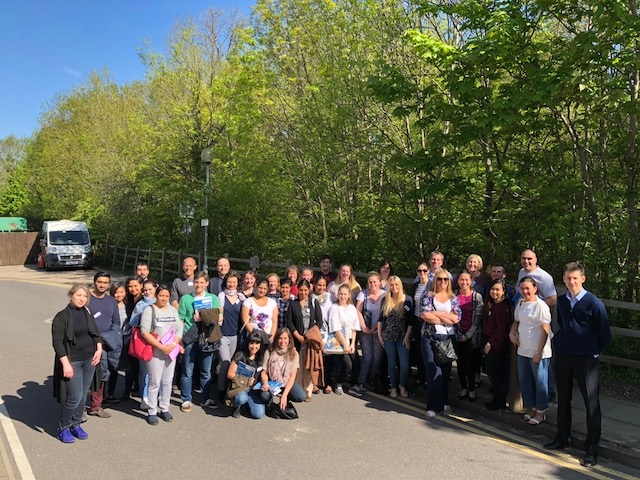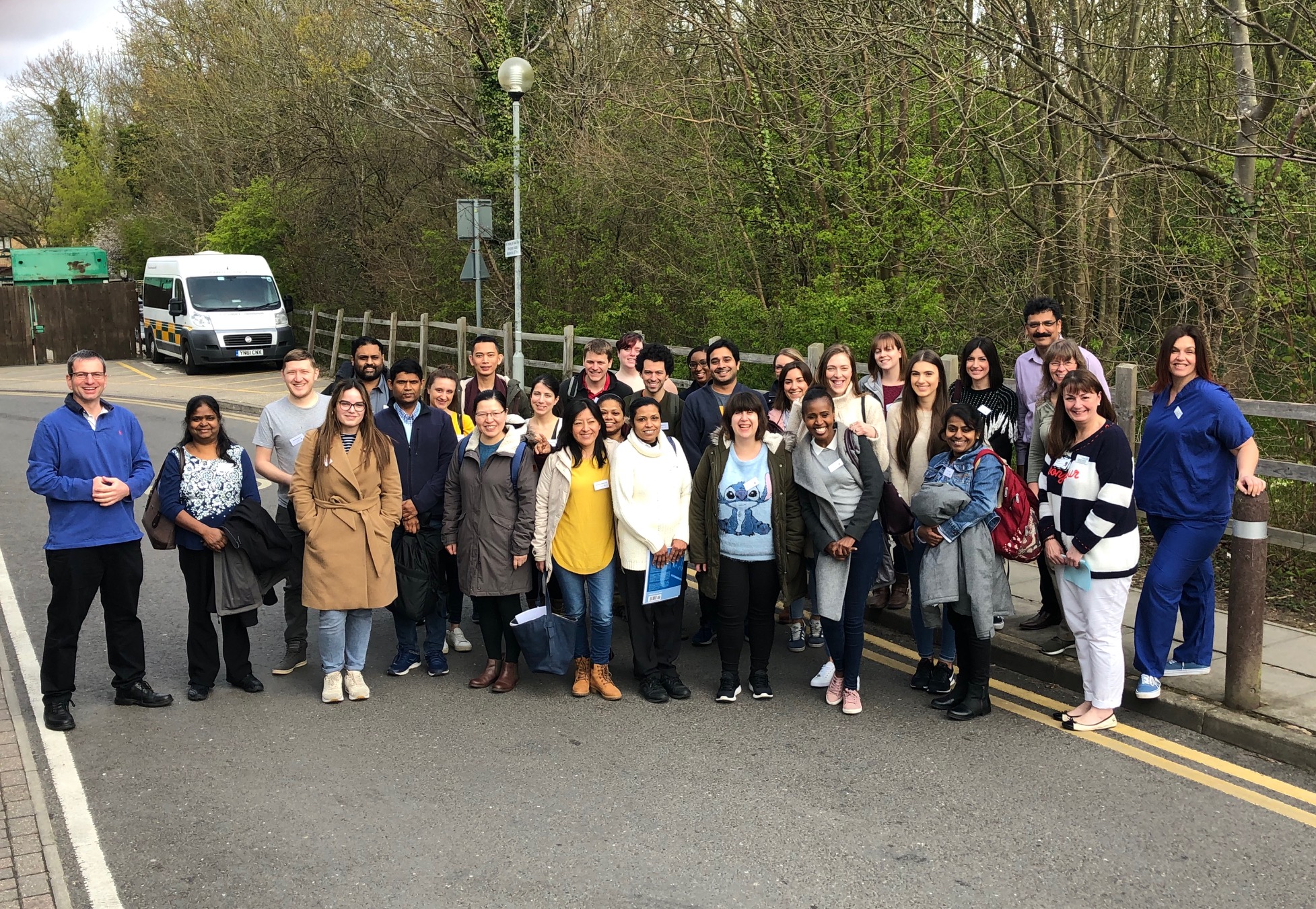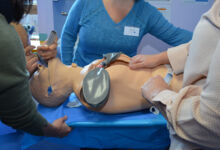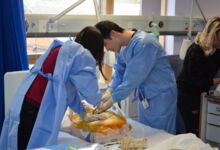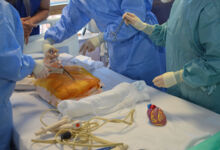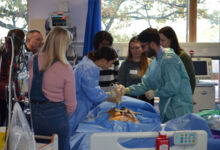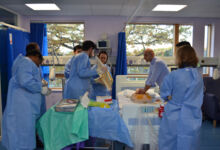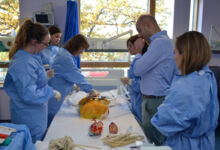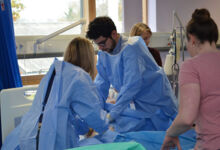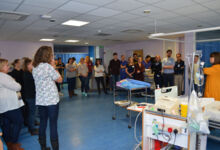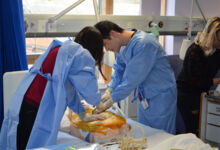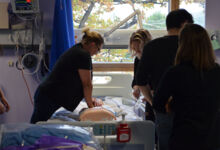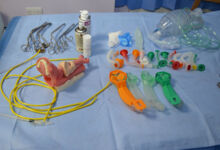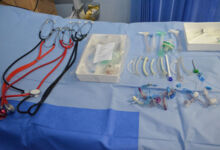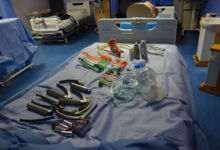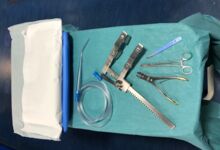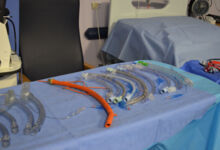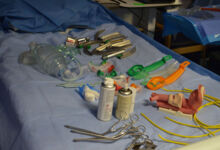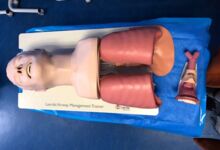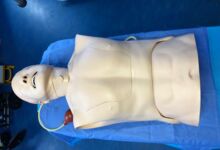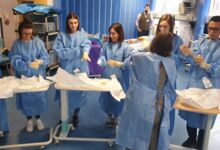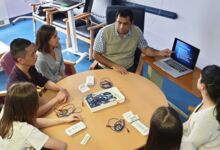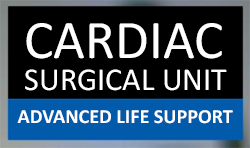The Royal Papworth CALS course aims are to empower all practitioners to act with confidence to better treat critically ill cardiac patients using well validated cardiac arrest protocols. We instil them with the tools, skills and knowledge to take to the clinical areas to improve patient safety and outcomes.
What is CALS?
"On the 15th of September 2007, a 67 year old lady underwent an elective aortic valve replacement at the James Cook University Hospital. Her operation was uneventful and she was returned to the ICU in a stable condition. The surgeons went back to theatre to proceed with their next case. One hour later she suddenly arrested. This is not unique as 1% of patients following cardiac surgery arrest, but what happened in this case was unique. A team of trained cardiac intensive care nurses without a surgeon proceeded to reopen the chest in a sterile fashion. The surgeons arrived and took over once the chest was open but remarkably she left the hospital 12 days later neurologically perfect. We feel that this excellent outcome was attained at least in part due to the rapid action taken by our staff members, putting into action the protocols that they had practised for the previous 2 years.
We have been training cardiac surgical unit clinicians since 2004 in all aspects of emergency cardiothoracic care, including a comprehensive protocol for the management of arrests after cardiac surgery. We also teach protocols for the most common ward emergencies such as hypotension, respiratory emergencies, arrhythmia and pacing emergencies.
We are particularly proud of the new EACTS approved protocol for the management of patients who arrest after cardiac surgery. We hope you find this manual useful but more importantly we hope that you take this out to your own unit and practise these protocols regularly."
The Royal Papworth CALS course has successfully run for over fifteen years and with the continued support from both managers and medical staff. The course has developed in strength and in reputation. We have gone from being able to facilitate one course a year to now running three courses to ensure staffs are supported and able to cope with emergency surgical situations post cardiac surgery. In 2019 we are planning to increase to four courses due to the demand and service needs in order to ensure a high quality and successful patient outcome.
To date, over 1500 delegates have graduated, from the UK and abroad (Poland, Netherlands, US, Sweden, Canada, Belgium and Honolulu). The course directors are proud of this achievement and continue to modify course needs based on the delegates that attend and their evaluations from each course.
The course, supported by Royal Papworth Professional Development, is delivered by Royal Papworth staff members, who ensure a highly enjoyable and professional experience.
In 2016, Royal Papworth CALS was officially endorsed by Cambridge University Health Partners, as a recognition for its high quality educational standards, as well as joining the national CALS scheme, ensuring its graduates are recognised as part of a national training programme.
Aims of the course
- To empower all practitioners to act with confidence to better treat our critically ill cardiac patients using well validated cardiac arrest protocols, safely managing the patient
- To promote a team approach in caring for the post cardiac surgical patient with positive results
- Discuss 5 point plan
- Demonstrate successful CALS re-sternotomy in 5 minutes.
Course to include
- EACTS Cardiac Arrest Protocols and applying them to clinical areas
- Practical sessions using the CALS protocol
- Lectures: tracheostomy emergencies, cardiovascular problems, transoesophageal echo, chest X-ray interpretation
- Workstations: chest opening, internal defi brillation, emergency airway management (inc. tracheostomy insertion), intra-aortic balloon device management, invasive monitoring, chest X-rays, transoesophageal echo and epicardial pacing
- 'Scoop and Run' guidelines review and mock transfer of cardiac arrest patient to theatre and chest opening
- Human factors in cardiac surgery
Who should attend?
- Critical Care Practitioners and Anaesthetic, Theatre Nurses, Surgeons, Anaesthetists, Alert Nurses, Surgical Care Practitioners
Fee (to include: CALS book, e-learning, lunch, certificate of completion,
access to CSU-ALS shared files and videos upon completion)
- External Doctors: £300, External Nurses/ODPs: £200
Papworth Hospital Doctors: £250, Papworth nurses: free to register (an internal charge is made of £150)
Course Directors
Mr Marius Berman
Consultant Surgeon
Royal Papworth Hospital NHS Foundation Trust, UK
view profile...
Tracey Senycia
Clinical & Practice Educator
Royal Papworth Hospital NHS Foundation Trust, UK
Dr Kiran Salunkey
Consultant Anaesthetist
Royal Papworth Hospital NHS Foundation Trust, UK
view profile...
Mr John Taghavi - Consultant Surgeon,
Royal Papworth Hospital NHS Foundation Trust, UK
Dr Kamen Valchanov - Consultant Anaesthetist,
Royal Papworth Hospital NHS Foundation Trust, UK
view profile...
Trudi Bircham - Surgical Care Practitioner
Royal Papworth Hospital NHS Foundation Trust, UK
Tina May - Senior Theatre Practitioner
Royal Papworth Hospital NHS Foundation Trust, UK
Sheila Turner - Lead for Clinical Education Kettering General Hospital, UK
Typical Programme
08:15: Registration
08:30: Welcome and Introduction
The arrested patient – Practical
09:00: Practical: Cardiac Arrest
- Groups 1 - 4
09:50: Practical demonstration of cardiac arrest protocol and practice
- Teaching Faculty
10:00: The EACTS Guidelines for resuscitation of patients who arrest post cardiac surgery/Scoop and run research
10:30: Coffee break
10:45: Transoesopohageal echo and Chest X-rays
11:10: Cardiovascular problems
11:40: Respiratory problems and tracheostomy emergencies
12:10: Human Factors
12:35: Questions
12:45: Lunch
13:30: Putting it all together – Workstations and practical
1. Emergency airway management in an arrest/Tracheostomy (A separate theory station will be run for the anaesthetic registrars)
- Groups 1-5 with mentors
2. How to re-open a chest/Gowning and gloving/Patient draping/Internal heart massage and internal defibrillation
3. Emergency external and epicardial pacing
4. Chest x-rays/TOE
5. Intra-aortic balloon pump/Invasive monitoring
16:00: Practical/Discussions/Evaluation of learning – Cardiac arrest
- Groups 1 – 4
16:45: Practical: Mock arrest on Day Care Ward
- All delegates
18:00: Summary, Evaluation and Close
Here's what previous delegates have said about the Papworth CALS course...
"Practical, relevant, will inform practice"
"It was very hands on and I had the chance to practice the things I have learned"
"The SIMS simulation scenario made a great learning tool"
"Clear connection between human factors and quality of patient service"
"Theory vs practical were excellent with the experts leading the sessions"
"Practical sessions really look like reality and that’s important"
Planning your visit to Cambridge
Course location
Royal Papworth Hospital NHS Foundation Trust, Papworth Road, Cambridge Biomedical Campus, Cambridge, CB2 0AY
Course accommodation
Accommodation is to be booked by the individuals attending the course.
If you require accommodation, may we suggest the following as options, but please feel free to search out alternatives:
- The Gonville Hotel, Cambridge
- The Hilton Hotel, Cambridge
- The Varsity Hotel, Cambridge
- Hotel du Vin, Cambridge
- The Moller Centre, Cambridge
- Madingley Hall, Cambridge
- Travelodge
- Premier Inn
Travel
It is recommended that attendees fly into London Stansted, London Gatwick or London Heathrow.
If arriving by rail, the closest railway station is Cambridge.
Special dietary requirements
Please inform us of any special dietary requirements at your earliest convenience.
Attire
Casual attire is appropriate throughout the course.
Contacts
Papworth Professional Development - Tel: +44 (0)1223 639821; Email: papworth.cpdevents@nhs.net

